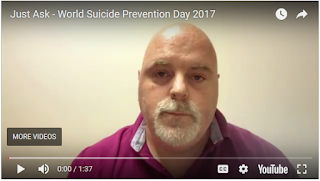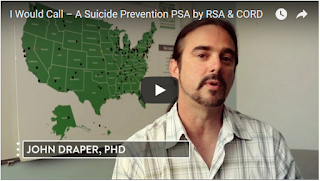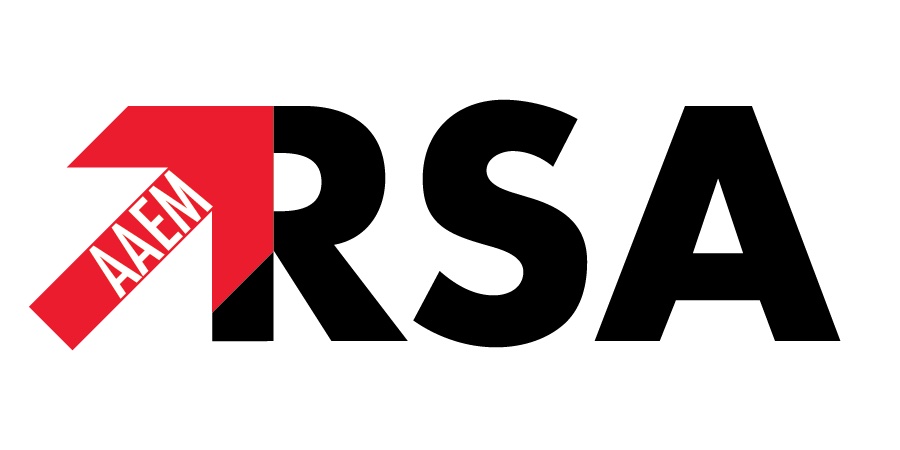 |
| Image Credit: Pixabay |
Author: Ashely Alker, MD MSc, PGY-3
2017-18 AAEM/RSA President
Originally Published: Common Sense November/December 2017
I remember the day I was accepted to medical school. It was one of the happiest days of my life. The first six months of medical school I fought against the imposter syndrome that plagued my incredible reality: I was going to be a doctor. To this day I feel privileged to do my job.
The only match to the privilege of being a physician is the challenge. The immense responsibility for human life, sleep deprivation, and loss of balance are challenges that plague all physicians. I have questioned my career choice and even considered quitting. And just as studies have shown that diabetes, hypertension and hyperlipidemia are risk factors for coronary artery disease, the stress, isolation, and sleep deprivation of the physician lifestyle are a perfect storm of precursors to depression.
The mental health crisis runs deep, from the spring mouth of medical school, to the rivers of residency and then, to the surprise and dismay of fledgling physicians, into the ocean of attending life. This is a pandemic infecting the minds of our healers, and may result in consequences even more detrimental than broken healthcare policy.
Current estimates of physician suicide are as high as the loss of a doctor a day.[1] It has been well documented that suicide is the second most common cause of death among medical students, after accidents.[2] Physician mental health is also increasingly being acknowledged as an international issue, with studies in Norway, Australia, Finland, China, Singapore, Taiwan and Sir Lanka all showing increase anxiety, depression and suicidal ideation among medical practitioners.[3,4,5]
Why do physicians become depressed?
Some may argue that resident depression is expected, even seemingly accepted by the medical community. The mental, physical and emotional sacrifices of residency are a hardship that all physicians have endured. A system exposed in the 1970’s novel House of God, has changed very little since the book’s publication.
At the end of years of sacrifice and dedication when residents are released into the “real world,” there is a promise of a more balanced life. Unfortunately, the hardships of attending physicians include burnout, aging and night shifts, litigation, and the invariable obstacles in the business and policy aspects of medicine. And unlike residency, these challenges will last a lifetime.
But there is hope. The versatility, flexibility and ingenuity of emergency medicine has brought us leaders that are fighting for the acknowledgement of these issues and are working for solutions. Emergency medicine is on the forefront of mental wellness. In spring 2016, emergency medicine leadership, including AAEM/RSA, convened at the Wellness Summit, where a plan was set into motion to address the crumbling mental health of the medical profession.
Individual physicians also are taking matters into their own hands. In New York, a group of inspiring emergency medicine physicians created Airway physician storytelling, where doctors gather to speak about the challenges, humor and losses physicians face daily. Airway was featured by AAEM/RSA at the 2016 AAEM scientific assembly.
AAEM’s own Dr. Loice Swisher is a mental health crusader who has greatly mentored RSA’s initiatives in suicide prevention. During suicide awareness month in September 2017, RSA signed on to the Bethe1 campaign, an initiative to Bethe1 to prevent suicide. Additionally, RSA and CORD have created a public service announcement concerning suicide prevention for residents and medical students. RSA also continues to participate in Take 5’s suicide prevention day September 10.
If physician mental health is an issue that speaks to you, please join RSA’s wellness committee and help us expand our suicide prevention and mental health initiatives for medical students and residents. Whether you are battling with depression or simply need an outlet during residency, RSA is here to help and we are always ready to listen.
 |
| Just Ask: An RSA and CORD collaboration with Dr. Christopher I. Doty, MD FAAEM |
 |
| I Would Call – A Suicide Prevention PSA by RSA & CORD |
References:
1. Sargent DA, Jensen VW, Petty TA, Raskin H. Preventing physician suicide. The role of family, colleagues, and organized medicine. JAMA. 1977 Jan 10. 237 (2):143-5.
2. “Creating a Safety Net: Preventing Physician Suicide.” AAMCNews, 20 Sept. 2016, news.aamc.org/medical-education/article/creating-safety-net-preventing-physician-suicide/.
3. Sobowale K, Zhou N, Fan J, Liu N, Sherer R. Depression and suicidal ideation in medical students in China: a call for wellness curricula. Int J Med Educ. 2014 Feb 15. 5:31-6.
4. Hope V, Henderson M. Medical student depression, anxiety and distress outside North America: a systematic review. Med Educ. 2014 Oct. 48 (10):963-79.
5. Cuttilan AN, Sayampanathan AA, Ho RC. Mental health issues amongst medical students in Asia: a systematic review [2000-2015]. Ann Transl Med. 2016 Feb. 4 (4):72.
6. ACGME. “Introduction to Common Program Requirements.” AAMCNews, 2016, 6. http://www.acgme.org/Portals/0/PDFs/Nasca-Community/NascaLetterToTheCommunity_11-4-16.pdf.
7. The unethical icompare and first trials. publiccitizen, may 2016, 7. https://www.citizen.org/sites/default/files/publiccitizenfactsheet-icomparefirst.pdf.
8. “Individualized Comparative Effectiveness of Models Optimizing Patient Safety and Resident Education. (ICOMPARE).” Individualized Comparative Effectiveness of Models Optimizing Patient Safety and Resident Education. ClinicalTrials.gov, 20 Oct. 2014, clinicaltrials.gov/ct2/show/NCT02274818.
9. “National Cluster-Randomized Trial of Duty-Hour Flexibility in Surgical Training — NEJM.” New England Journal of Medicine, www.nejm.org/doi/full/10.1056/NEJMoa1515724#t=articleResults.
